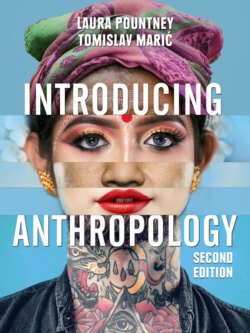Читать книгу Introducing Anthropology - Laura Pountney - Страница 71
The history of anthropological research methods
ОглавлениеAnthropology – the study of ‘humanity’ – grew from the intersection of European discovery, colonialism and natural science. In the early nineteenth century, anthropologists were interested in reconstructing the stages of social and cultural evolution. Early anthropologists such as Edward Burnett Tylor and Lewis Henry Morgan published influential works tracing everything from writing systems to marriage practices, from their primitive beginnings to the more complex modern state. Originally, anthropology was thought of as a discipline concerned with studying the ‘savage’. This meant that anthropologists researched societies that had either already, or would soon become, dominated territories within the European empires. By the beginning of the twentieth century, anthropologists were no longer content to rely on the accounts of non-specialists, such as colonial officials, missionaries and travellers, for their primary data, and they began themselves to go into ‘the field’ as ethnographers to gather information at first-hand. Observations made during the colonial era were later seen as flawed, as they had at their heart the idea that Western civilization represented the pinnacle of human evolution and that all other ways of life were inferior.
Although anthropology has changed quite a bit since then, ethnography remains one of the methods that distinguish it from the other social sciences, and the importance of doing ethnography is perhaps one thing on which all anthropologists agree. In the early part of the twentieth century, anthropology was typically concerned with small-scale, technologically simple societies. The purpose of this was partly to record ways of life that were changing under colonialism (they may well have been changing anyway – don’t assume that colonialism was the only reason). Today, anthropology has extended its area of interest into more developed societies, taking them all into account and treating them all as equally significant. Anthropologists retain their rich and detailed narrative approach (including storytelling), which reveals a lot about particular people and places. In the twenty-first century developments in digital technology have led anthropologists to study how humans interact with their technological devices, which has resulted in a new subdiscipline of digital anthropology.
